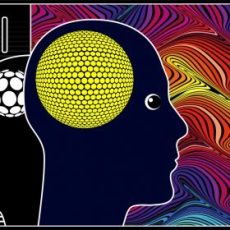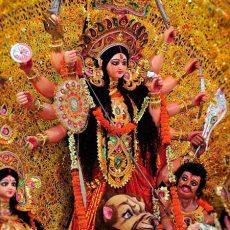One of the wisest enlightened mystics of the last century, J. Krishnamurti, whose birthday is on 11th May, was often asked: What role has emotion in life? And one of the open sessions, compiled in “The Book of Life” answers: How do emotions come into being? Very simple. They come into being through stimuli, through the nerves. You put a pin into me, I jump; you flatter me and I am delighted; you insult me and I don’t like it. Through our senses emotions come into being. And most of us function through our emotion of pleasure; obviously, sir. You like to be recognized as a Hindu. Then you belong to a group, to a community, to a tradition, however old; and you like that, with the Gita, the Upanishads and the old traditions, mountain high. And the Muslim likes his and so on. Our emotions have come into being through stimuli, through the environment, and so on. It is fairly obvious.
Happyho also provides best Meditation and Tarot classes in Noida and Delhi NCR India area
He raises some fundamental questions: What role has emotion in life? Is emotion life? Do you understand? Is pleasure love? Is desire love? If emotion is love, there is something that changes all the time. Right? Don’t you know all that?
We have always been associating our love with all kinds of emotions, but the enlightened mystic differs and says: … So one has to realize that emotions, sentiment, enthusiasm, the feeling of being good, and all that have nothing whatsoever to do with real affection, compassion. All sentiment, emotions have to do with thought and therefore lead to pleasure and pain. Love has no pain, no sorrow, because it is not the outcome of pleasure or desire.
The similar questions were put to Osho also: So often a feeling that I can’t describe fills my heart and my whole being. During the other morning’s discourse, it felt like overwhelming love for you and the whole. But now I realize that the same feeling or a very, very similar feeling also comes up in fear, anguish, throbbing pain, helplessness, and frustration. I am trembling and confused. Osho, can you say something?
Osho gives a unique response and says: There is certainly something very similar in very different emotions: the overwhelmingness. It may be love, it may be hate, it may be anger – it can be anything. If it is too much then it gives you a sense of being overwhelmed by something. Even pain and suffering can create the same experience, but overwhelmingness has no value in itself. It simply shows you are an emotional being. This is typically the indication of an emotional personality. When it is anger, it is all anger. And when it is love, it is all love. It almost becomes drunk with the emotion, blind. And whatever action comes out of it is wrong. Even if it is overwhelming love, the action that will come out of it is not going to be right. Reduced to its base, whenever you are overwhelmed by any emotion you lose all reason, you lose all sensitivity, you lose your heart in it. It becomes almost like a dark cloud in which you are lost. Then whatever you do is going to be wrong. Love is not to be a part of your emotions. Ordinarily, that’s what people think and experience, but anything overwhelming is very unstable. It comes like a wind and passes by, leaving you behind, empty, shattered, in sadness and in sorrow.
Love is certainly something qualitatively different than our emotions as J.Krishnamurti pints out: To love something you must be with it completely; your heart, your mind, your whole being must be with it, so that there is not the observer and the thing observed. This doesn’t mean identification, which is merely another trick. When you identify yourself with your family, that is not love at all. It is yourself extended that you love. It is the image, the symbol of `my wife’ or `my husband’ that we love, or think we love, not the living individual. I don’t know my wife or my husband at all; and I can never know that person as long as knowing means recognition. For recognition is based on memory – memory of pleasure and pain, memory of the things I have lived for, agonized over, the things I possess and to which I am attached. How can I love when there is fear, sorrow, loneliness, the shadow of despair? How can an ambitious man love? And we are all very ambitious, however honourably.
Being a witness of all the emotions and choicelessly aware each moment, one can transcend these overwhelming emotions, and rise to real love–is emphasized by both the enlightened mystics.





